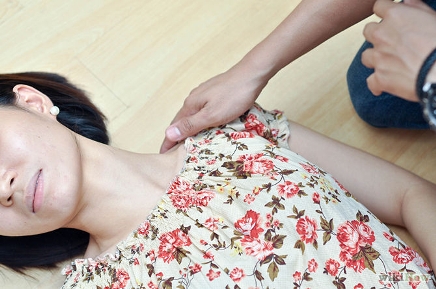Fainting: Symptoms and Causes
Although in the majority of cases, we should not underestimate it because its can also alert us to some more severe health problems.
Fainting involves a temporary loss of consciousness. Low blood sugar, a problem of anemia, may be behind sudden fainting. Fainting is caused by the reduced blood flow to the brain, although there is to find out what causes this decline. In most cases, fainting is mild and the affected person will recover in a couple of minutes.
Causes
The most common causes of fainting can talk about:
Menstrual discomfort: Especially in younger women.
Sudden changes in posture: For example, to get up too fast or by joining after having been crouching a long time. This causes a sudden change in blood flow to the brain and can cause a simple dizziness or fainting.
An emotional shock: Especially in sensitive individuals, tragic news or witnessing an accident can cause lightheadedness or fainting. In this case, the emotional shock to the nervous system reacts causing a sudden drop in voltage and pulses.
Severe pain: For example, toothache or fracture, can cause fainting. Feeling fear can also cause this type of reaction.
Neurological or heart problem: They are the most serious causes that may be behind a fainting, and also more common after age 65.
How to Prevent Fainting
There are some aspects that may predispose us to suffer a blackout and that, therefore, we can prevent. Thus, if we have low pressure, we must avoid incorporate abruptly after crouching. It is better to find a foothold and get up slowly. Similarly, if we have to be long standing, should make small movements with our legs. If we notice a feeling of dizziness, it is best to sit. If dizziness, it is useful hold hands and press hard for about one minute. Cross your legs and repeat the exercise.
When to see a doctor
If you have fainted without cause, seemingly justified, should consult a doctor. Similarly, if before the collapse we have noticed palpitations, shortness of breath or chest pain. It is also important to check if we have noticed leaking of urine during fainting; if the fading has occurred while we carried out physical exertion; or if we have a family history of epilepsy or heart disease in young people.
